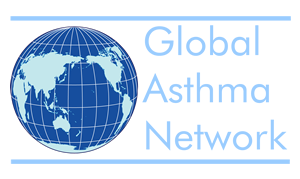

Access to effective treatment is central to NCD management, reflected in targets set out in WHO’s Global Action Plan for the prevention and control of NCDs and in the UN’s 2030 Agenda for Sustainable/Development.
GAN has been advocating for equitable access to affordable good quality essential medicines for the treatment of asthma for more than 10 years. Despite the significant advances in research, strategies, and guidelines, distinct geographical disparities exist in the (AAIAM) particularly in low- and middle-income countries (LMICs), and in underserved minority groups within high income countries (HICs).
Against the backdrop of three High-Level-Meetings on health in September 2023, the World/Health/Summit October 2023 and the upcoming COP28 which plans to lift the political profile of the climate-health nexus; this means Health is back and high on the Political leaders Agenda.
Our presentation, will examine the accomplishments, by the WHO, GAN, GINA, the UNION and other organizations working in Asthma, reflect on the Union's strategy for chronic-respiratory-diseases and the Asthma-Drug-Facility pioneering approach to drug-procurement and management, discuss how to achieve the recommendations concluded at the UNION’s-Multi-Stakeholders-Meeting, and highlight the different roles and tasks of international-community and key-stakeholders, including the affected-community.
We will suggest a framework to improve [AAIAM] with the goal of building-consensus around stakeholders’ responsibilities.
We conclude: To effectively realize the importance to the [AAIAM] potential, must be elevated to a global-level of collaboration and coordination among multiple-stakeholders and that advancing ADF combined with comprehensive programmatic-management can play a vital role in improving [AAIAM], through International-Collaboration.
GAN gratefully acknowledges funding from the University of Auckland and Wellcome (Grant number 203919/Z/16/Z) as well as sponsorship from AstraZeneca and GlaxoSmithKline that has helped to make the GAN Symposium 2024 possible. We thank the speakers and the organisations they represent for their contributions including securing their own funding to enable their participation. The Symposium programme was developed independently by the GAN Steering Group.
Our network has been targeted by an email scam. If you receive any unusual requests for assistance from any of the steering group members, please ignore it.
These emails are a common scam that has also targeted many other organisations. Please note we will never make any request for financial assistance from our collaborators. If you have any questions please contact us at info@globalasthmanetwork.org